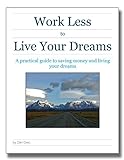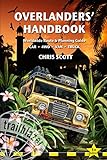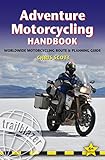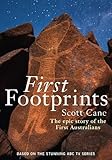Difference between revisions of "Australia"
ReplaceBot (Talk | contribs) m (Bot: Automated text replacement (-==Process at border== +==Process at border== )) |
ReplaceBot (Talk | contribs) m (Bot: Automated text replacement (-=Driving in {{PAGENAME}}= +=Driving in {{PAGENAME}}= \n==Recommended books for Overlanding in {{PAGENAME}}==\n{{guide_books_country}}\n)) |
||
| Line 80: | Line 80: | ||
''Describe the paperwork requirements and process at the border to exit.'' | ''Describe the paperwork requirements and process at the border to exit.'' | ||
| − | =Driving in {{PAGENAME}}= | + | =Driving in {{PAGENAME}}= |
| + | ==Recommended books for Overlanding in {{PAGENAME}}== | ||
| + | {{guide_books_country}} | ||
| + | |||
==Insurance requirements== | ==Insurance requirements== | ||
Third party personal injury insurance is compulsory in Australia and in all states except New South Wales is included in the annual registration fee. Property damage insurance is not compulsory. | Third party personal injury insurance is compulsory in Australia and in all states except New South Wales is included in the annual registration fee. Property damage insurance is not compulsory. | ||
Revision as of 10:48, 10 November 2014
Currency to display:
Contents
- 1 Visiting Australia
- 2 Entering Australia with a Car or Motorbike
- 3 Driving in Australia
- 4 Gas and Diesel price in Australia
- 5 Safety and Security Considerations
- 6 Camping in Australia
- 7 Navigation
- 8 Special Overland Travel interests
- 9 Vehicle Maintenance
- 10 Buy or sell a car or motorbike in Australia
- 11 References
- 12 Helpful External links
Visiting Australia
Give a brief overview of what it's like to visit. How easy is the border, how safe is the country, are there great things to see and do, etc.
Entering Australia with a Car or Motorbike
Correct as of: January 2014
Required Paperwork
You need either a Carnet de Passage (temporary visitor) or an Import Permit (permanent resident or returning Australian citizen) to bring a motor vehicle into Australia. If you ship a car or motorbike to Australia without either it will be turned back at the border. The vehicle will need to be either shipped out again or destroyed.
Vehicles in Australia on a Carnet must retain current overseas registration (and yes, some Police will check your UK tax disc!) Foreign registered vehicles that entered the county on a Carnet cannot be sold in Australia. No import permit is required.
- Import Permit (permanent resident or returning Australian citizen):
If you bring a vehicle on an Import Permit you must pay import duties (if less than 30 years old) and GST. The vehicle must be registered in Australia before it can be used on the road. Any overseas registration becomes invalid.
If you have owned the vehicle for more than 12 months overseas, you can bring the vehicle in with few restrictions.
If the vehicle is pre-1989 and unmodified, the Import Permit paperwork is pretty much a formality.
If the vehicle is 1989 or later and you have not owned the car for at least 12 months overseas the Import Permit process is virtually impossible.
More information on import permits can be found here: Australian Government Application for approval to import a vehicle
Requirements for permanent registration and road worthiness vary depending on which state you want to register in. It is best to check directly with that authority. Generally a registered Automotive Engineer must be consulted and the vehicle will need some modifications. The process can cost anywhere from $500 upwards depending on the extent of modifications required.
Process at border
(To check if you need a travel Visa for Australia, application instructions and fees see: Australia Visa online application at VisaHQ.com)
It is very, very important to ship your vehicle and all contents clean. Australia and New Zealand have the toughest quarantine laws in the world and any sign of mud or organic material will result in a quarantine rejection. You will then be faced with a large, non-negotiable bill for cleaning. Most shipping companies are well aware of this and will happily clean the vehicle for you before loading at a far cheaper price.
Shipping Agents will happily charge you $500.00 AUD - $1,000.00 AUD to handle the customs clearance for you. You can do it yourself but you will spend a day running around doing paperwork. You won't be able to use your vehicle to do that running around. If you have to do it in taxis it will get expensive.
The basic process if you do it yourself is:
- You go to the shipping company with your Bill of Lading and pay the shipping company fees.
- You then go to customs, pay their fees and schedule and appointment for a quarantine inspection. The fees vary based on the age of the vehicle and whether the vehicle enters on a Carnet (no import duty) or an import permit. Check the charges carefully as they do make mistakes.
- If you arrange it yourself you must be present for the quarantine inspection. If it passes, you then pay the unloading fees to the docks (if any).
- If the vehicle fails quarantine it will be transported (not driven) to a cleaning facility, cleaned and returned for another inspection at your expense. That process will take several days.
If you have an agent do it, you just pay what they tell you and then collect the vehicle when it is ready. They will also ensure the amounts charged are correct and Quarantine inspection is generally (but not always) less strict.
Once cleared you can drive away on a Carnet without restriction. If the vehicle was shipped on an Import Permit you will need to trailer it away or arrange an Unregistered Vehicle Permit from the registration authority. Depending on the state where the vehicle arrives (e.g. WA) you will have to have the vehicle checked on the pit. Careful: in Adelaide it has happened that the vehicle was released without inspection and then was not allowed to drive in WA!
DO NOT leave the vehicle at the port after it clears customs or you may be billed for a huge storage fee by the docks.
Cost of entry
tbc
Permitted length of stay
12 months maximum on a Carnet.
Extension of stay
You can extend your Carnet by carrying out the following:
- Contact [aaa.asn.au Australian Automobile Association] to apply for an extension
- They will contact your current Carnet issuer for approval to extend
- They will then pass you over to a local motor organisation i.e NRMA
- Who will coordinate with customs to have the Carnet extended
- Cost around $100.00 AUD Plus what ever you have agreed with your local issuer
NOTE: - You are only allowed to extend the Carnet once for one year. The Carnet is issued based on you touring the country on holiday, if customs are made aware that you are working in the country they may not allow an extension.
Storing a vehicle and temporarily leaving the country
If you bring a vehicle in using a Carnet you are not normally permitted to leave the country without it. The vehicle is supposed to leave before or when you do.
There are a number of self-storage companies that you can hire a garage from to store a vehicle. Look at link Kennards Self Storage and similar companies.
Exiting with a vehicle
Describe the paperwork requirements and process at the border to exit.
Driving in Australia
Recommended books for Overlanding in Australia
Insurance requirements
Third party personal injury insurance is compulsory in Australia and in all states except New South Wales is included in the annual registration fee. Property damage insurance is not compulsory.
Travelers with a vehicle on a Carnet will usually need to arrange Third Party Insurance.
Cost of insurance
State the price of insurance and a time period.
Where to purchase insurance
Describe where insurance can be purchased.
Driving license
Overseas visitors are allowed to use a driving license issued from their home country for up to six months in a single state, if you move from state to state with out stopping for six months may not need to apply for an Australian driving license. (check specific state rules).
You can drive on your current overseas license as long as:
- You remain a visitor
- Your overseas license remains current
- You have not been disqualified from driving in NSW or elsewhere, and
- You have not had your license suspended or cancelled or your visiting driver privileges withdrawn.
- Note registration and driving license requirements change from state to state.
An international driving license is not required
More information can be found here Driving with an overseas license
Driving side of road
Australians drive on the left side of the road, the same as in Britain. Left-hand-drive vehicles can be driven without issue when they are in the country temporarily.
Mandatory items in vehicle
None are required by law.
Roads
General Road quality
In the cities, the roads are generally reasonably wide as most Australians own cars as their primary form of transport. One way streets certainly exist but aren't as common as they are in denser cities like Hong Kong. Road quality within the cities (particularly in the suburbs) can be variable - Sydney and Melbourne in particular are some of the largest cities by area in the world and funding to fix pot holes is stretched thin.
Between the cities, the freeway system that links the big cities on the east coast (Melbourne to Sydney for example) is generally very good. Between smaller towns, there are generally paved two-lane highways that are decent. As you get more remote though, expect to deal with dirt roads - the outback of Australia is extremely large and not densely populated, and as such a large proportion of Australia's road network is dirt or gravel.
Road signs
Briefly describe the overall quality & existence of road signs for directions and hazards. In the cities, road sign quality is pretty good - one thing to watch out for is speed limit signs though. The speed limit changes extremely frequently and speed cameras are common.
Quality of signposting decreases as you travel to more remote regions - on the major highway/freeway networks it's generally very good with signposts frequently educating you as to what's ahead, how far to go, whether there's petrol etc. On more remote roads you'll probably find town names and not much else.
Toll roads
In cities, toll roads are unfortunately quite common and very expensive - to get over the Sydney Harbour Bridge is around $3.60 AUD. In general it is quite possible to avoid tolls in most cases, but expect your journey to take up to twice as long depending on traffic.
In Australia, generally "Motorways" have tolls and "Freeways" are free.
When using toll roads, something to consider is that although there are still cash-based booths here and there, most tollways rely on RFID-based toll collection mechanisms, where you register for a tag, put it on your car and it's detected when you drive through the booth, deducting your account. In NSW, motorcycles are generally exempt from having to carry around the tag (as there's no practical place to really put it) so the numberplate of the bike is scanned as they drive thruogh.
Outside of the cities, travel is generally free. However, expect to see the occasional car-ferry that charges per trip.
Bribery in Australia
Australia is one of the least corrupt countries in the world - joint 8th with Switzerland according to Transparency International. Bribery isn't part of the culture and it would be very unusual to be extorted. Offering bribes for something simple like a speeding ticket is extremely inadvisable.
Checkpoints
Extremely uncommon. There is no restriction on crossing state or territory borders with a vehicle registered in another state or country. There are restrictions on what you can carry into some places to prevent the spread of pests. (eg: fresh produce into some agriculture areas.) In theory your vehicle could be searched when going into those areas.
Traveling with pets
All pets are subject to quarantine when arriving internationally. Quarantine time is based on exported country with a minimum of 30days in quarantine. Refer to: AQIS - Australian Quarantine and Inspection Service for current criteria. Pets are not allowed into National Parks or most State Forest areas. Many capsites also have restrictions on pets. Hotels or guest houses that allow pets are very rare.
Gas and Diesel price in Australia
Last updated: Feburary 28, 2012
Currency and unit to display:
Compared to the US, fuel in Australia (referred to as 'petrol' rather than 'gas', although people will still understand you) is fairly expensive. An average petrol station in a city will generally offer E10 91 or 91, 95, 98, Diesel and LPG. Out on the country, expect to see less high-octane fuels and more 91 than E10 91.
E10 was introduced a few years ago - in essence it's a blend of 10% ethanol (which can be refined from Australian-grown sugar cane and is supposed to burn cleaner) with 90% normal 91 octane fuel. Most Australians use this and most modern cars will run with it - be careful with older engines, as ethanol tends to dissolve any rubber it touches. Also keep in mind that E10 tends not to last quite as long as normal 91 octane fuel. Unfortunately because it's taken over, it's very hard to find 91 octane fuel without ethanol - generally it's quite common outside the cities, but inside it can only be found at the occasional 7-11 station.
95 and 98 octane fuels are generally quite a bit more expensive and often have other agents to clean your engine and so forth. If you have an older engine that can't run E10 this is often your only choice.
LPG (Liquid Petroleum Gas) is reasonably common in Australia due to its gas reserves. A large number of Australian cars (particuarly taxis) have been converted to run on LPG, which is far cheaper than petrol and offers nearly the same performance. However, if your vehicle hasn't been converted, stay away.
| Gasoline Grade | Price |
|---|---|
| Unleaded E10 (91) | $1.45 AUD per Liter |
| Unleaded (91) | $1.48 AUD per Liter |
| Premium (95) | $1.52 AUD per Liter |
| Ultra (98) | $1.55 AUD per Liter |
| Diesel | $1.46 AUD per Liter |
Gas and Diesel Availability / Frequency
Petrol shortages are extremely rare in the cities, and petrol stations are extremely common. In remote Australia, you'll generally find that there are enough stations to keep you going as long as your vehicle has a reasonable range, but carrying extra fuel in a jerry can or similar is advised.
Gas and Diesel Quality
Petrol quality is quite good.
Safety and Security Considerations
Driving at night
Driving at night is generally safe in the cities and outside them. In country areas be careful to watch for native wildlife though, particularly Kangaroos. As you travel around you'll see utes (pickups) and buses adorned with massive, Road-Warrior-esque bull bars - these are installed mainly with Kangaroos in mind. Kangaroos are very fast, very hard to predict and very solid - hitting one at ~100kmh can disable a car or kill a motorcyclist. There'll usually be signs on main roads where Kangaroos are common. Kangaroos are most active at sunrise and sunset - be most vigilant around these times.
Vehicle parking
Vehicles can be parked on the street, although make sure you check that there's no 'No Parking', 'No Stopping' etc signs. Whether they're safe depends on what kind of neighbourhood they're parked in. An odd rule of thumb is that in most Australian cities, the more affluent neighbourhoods tend to be towards the east. Parking in towns depends on the town - there are many nice towns where your vehicle will be untouched, and others where bored kids might steal everything that isn't welded on. Be aware of your surroundings.
For parking off street, in the cities there are a lot of paid car parks that are very expensive.
In Melbourne motorcycles may legally park on the footpath provided they do not obstruct pedestrians.
Special driving considerations
A List of special things to be careful of (i.e. Unsigned speed bumps, abnormal road rules, people or animals on the road, etc.).
List any roads that are not recommended to drive for safety or other security reasons.
Speed cameras are common in capital cities and may have only a 3kph tolerance. The speed cameras are often not sign-posted and can be well hidden. All popular GPS can provide Australian maps including fixed speed camera locations.
Melbourne city has intersections where "hook turn" or Right Turn from the Left Lane rule applies. This is to avoid cars turning right blocking the trams. It sounds suicidal but it works. The intersections are signposted but often confuse travellers. The Police and locals alike show no mercy on visitors who are unaware of the rules. There are plenty of examples of the process in operation on Youtube under "Hook Turn Melbourne".
Remote properties may be unfenced and livestock frequently wander onto the roads.
You may encounter road trains, or trucks with multiple trailers attached, in rural areas. They travel at high speed, can drift out of their lane due to their length and are difficult get past. Dusty conditions only add to the danger. If one comes up behind you on a narrow dusty road it's best to pull off and allow them to overtake.
Security advisories and information
- Country Specific Information - U.S. Department of State
- Travel Reports and Warnings - Foreign Affairs and International Trade Canada
- Travel advice by country - Foreign and Commonwealth office (U.K.)
- Travel Advice for Australia - Australian Department of Foreign Affairs and Trade
Camping in Australia
Describe if organized "pay" camping is common. List the facilities commonly found at these campsites.
List the approximate average price range of camping in organized campgrounds.
Also discuss the possibility of "wild" or "roadside" camping. How common is it? Is it considered safe, or a bad idea.
Camping guide books
List and link to books specifically for camping.
Drinking water
Regular tap water is quite safe to drink, although taste and quality does vary.
If a sign on a tank or tap says "Bore Water" it indicates the water is intended to be used for agriculture or gardens and is NOT safe to drink.
Paper maps
Reise Know-How are amoung the best paper maps. Purchase paper maps before arriving in Australia
GPS Maps of Australia
Review different GPS companies, quality and coverage (Tomtom, Garmin, OSM, Tracks4Africa). (with links to each).
GPS co-ordinates for camping, propane, gas, repairs, etc. in Australia
Link to sites that have a list of GPS co-ordinates (or directions) for camping locations (including "wild" campsites), propane filling, gas stations, repair shops, places of interest, etc.
- ROADTRIP FROM MELBOURNE TO BRISBANE - A trip through the Australia from Melbourne to the Brisbane with gps locations and prices recorded.
Special Overland Travel interests
List any special items / places that are popular with Overlanders
Guide Books
Vehicle Maintenance
Dealers
4x4s / Trucks
- Toyota Global Dealer Locator
- Land Rover International Dealer Locator
- Mercedes Benz International (select country on bottom right)
- Jeep International site locator
Motorbikes
Local Garages
Add known good mechanics here.
Buy or sell a car or motorbike in Australia
Buy
Foreigners can buy a vehicle in Australia without restriction provided an address in that state/territory to register the vehicle to is available. That can be the hostel you are staying at or a friend's address. It cannot be an overseas or interstate address.
Sell
Australian registered vehicles may be sold at the end of your stay without any particular restriction. Each state or territory has their own requirements for transfer of ownership. You can also take an Australian vehicle out of the country without restriction.
Foreign plated vehicles can only be sold unregistered. If the vehicle came in on a Carnet the new owner will never be able to register the vehicle in Australia and the Australian government will claim the Carnet deposit. If the vehicle is stolen or destroyed the process of discharging the Carnet will be very complicated.
References
Links to the source of any information - blogs or discussion forums, etc.
Helpful External links
Add any helpful external links here.
- Australia: Visa and Passport requirements | World Travel Guide
- Health Information for Travelers to Australia - Center for Disease Control and Prevention
- Australia travel guides at wikivoyage
- Australia - Wikipedia, the free encyclopedia








